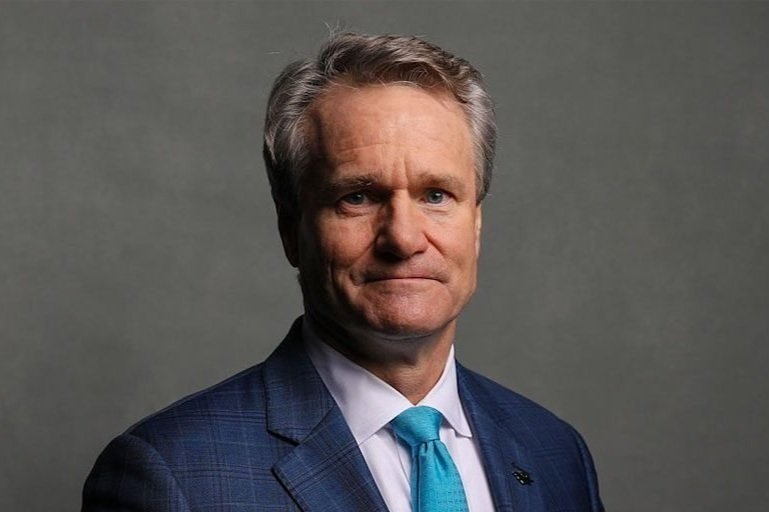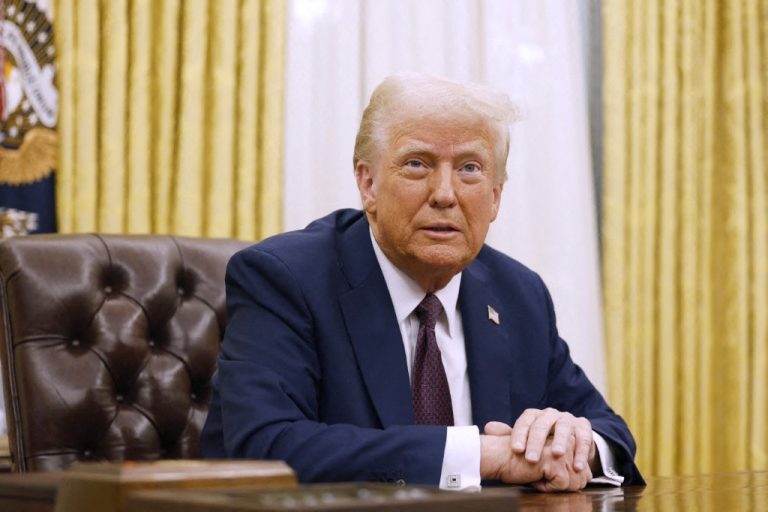A rather telling scene at Davos should provide corporate executives with a feel of what it means to do business in the Trump 2.0 era if they were wondering what the next four years would hold.
The top minds in business, technology, investing, and economics come together at Davos, also known as the annual World Economic Forum conference held in the Swiss Alps.
Naturally, a large number of people attended President Donald Trump’s keynote address, which he gave via video conference from Washington.
However, Lauren Hirsch of the New York Times claims that Thursday’s happy hour was not dominated by Trump’s proposals for reduced corporate taxes or tariffs.
Rather, the conversation focused on Bank of America CEO Brian Moynihan, who initially believed he was setting up a softball for the president but was quickly targeted by Trump. What followed was a public censure of one of the world’s most influential bankers—a direct warning to the private sector from Trump himself: The administration will not tolerate “woke” philosophy in the government, and businesses had best join the cause.
Trump bragged about his promises to lower inflation during a Q&A session before abruptly turning the conversation back to Moynihan.
“You did a great job, but I hope you start letting conservatives work in your bank because a lot of conservatives complain that banks don’t let them do business with them,” Trump stated. “You, Jamie, and everyone else… You’re doing something incorrectly.

Trump was referring to a claim that conservative and religious organisations had been “debunked” by big banks, such as Bank of America and Jamie Dimon’s JPMorgan Chase, because of their political views.
After over a dozen state auditors and treasurers signed an open letter to Moynihan this spring, describing a few instances in which accounts belonging to right-wing or religious organisations were closed, the claim—which both banks have always denied—became a talking point for right-wingers. (BofA earlier declared that such incidents had nothing to do with political or religious affiliations.)
Speaking to CNN on Thursday, Bank of America spokesperson Bill Halldin reaffirmed that the bank has “no political litmus test” and serves 70 million customers, including conservatives.
Additionally, Patricia Wexler, a representative for JPMorgan, stated in a statement: “We have never and would never close an account for political reasons, full stop.”
The purpose of Trump’s comment about Moynihan was not to defend a few groups that were forced to switch banks. The intention was to make it clear to all of the executives there and to the global audience watching the livestream that any assault, whether imagined or genuine, against his base would not be accepted.
The Republican Party, which until recently had a laissez-faire attitude towards business, has undergone a dramatic change.
Conservative orthodoxy resented any hint of government interference in business matters, whether it be through corporate taxation or federal regulations, for many years.
According to Trump’s carrot-and-stick policy, however, the calculation has shifted: “Sure, we’ll lower your taxes, but it will come at a cost.”
The “debunking” allegation is consistent with a larger sentiment among conservatives who feel betrayed by a left-wing agenda that has infiltrated Corporate America. A series of alleged inequities have sparked a vigorous campaign against diversity, equality, and inclusion measures, initially from the White House and later on social media.
Bud Light may not have started the uproar, but its brief 2023 advertising collaboration with a trans influencer stoked long-simmering animosities on the right.
Conservative influencers and the media exploded the story into a conspiracy theory about the pervasiveness of “woke” culture after a single sponsored piece appeared on Instagram. This was Budweiser, and it wasn’t just the coastal elites with their open borders and pronouns. All of a sudden, the King of Beers joined the LGBTQ+ community.
Bud Light lost more than $1 billion in sales the following year as a result of consumer backlash, despite the company’s concession and attempt to regain the advertising place.
Since then, it appears that scores of companies have given in to right-wing activists by announcing changes to their DEI programmes.
Walmart, Ford, and Target are just a handful of these companies. Many of the “wins” are exaggerated by the activists because many businesses, such as McDonald’s, have only changed their wording rather than changing how they do business.
Nevertheless, the DEI pushback has evolved from a social media campaign by a few rabble-rousers to the official policy of the US government since Trump went into office.
Trump rescinded federal DEI programmes last week and even directed government agencies to look into these initiatives at publicly traded corporations.


